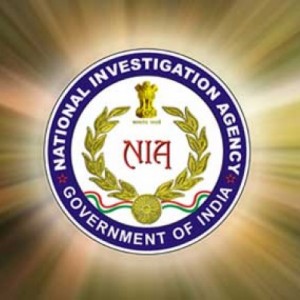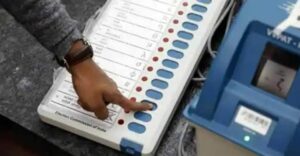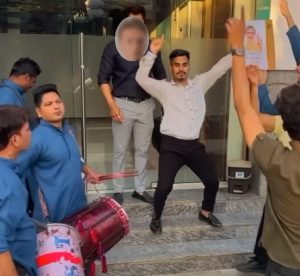Union Home Minister’s Statement In Ishrat Jahan Case
“ In a police action with the Ahmedabad police on 15.6.2004, four persons namely Javed Sheikh, Jishan Johar, Amjad Ali and Ishrat Jahan were killed.
2. Ms. Shamima Kausar, mother of Ishrat Jahan, filed a Special Criminal Application no.822 of 2004 in Gujarat High Court requesting inter-alia, that the Central Bureau of Investigation may be directed to carry out investigation of FIR No.8 of 2004 dated 15.6.2004 relating to the said incident registered with DCB Ahmedabad City and to direct the Union of India to provide compensation to the petitioner. The Respondent to the Petition were the Union of India, the State of Gujarat and others.
3. The first affidavit on behalf of Union of India was filed in the Hon’ble Gujarat High Court on 6.8.2009 by the then Under Secretary in the Ministry of Home Affairs, after it was approved by the then Union Home Minister. In the said affidavit it was submitted that Union of India had received specific inputs to suggest that Lashker-e-Toiba (LeT) had been planning to carry out the terrorist activities in various parts of the country, including the state of Gujarat. It was also submitted that the Union of India was aware of the inputs that the LeT was planning to carry out assassination of some top-level national and state leaders and LeT in this regard had tasked its India based cadres to monitor their movements. It was further stated that Union of India had learnt that LeT had inducted its cadres including Pakistani LeT terrorists in Gujarat for specific terrorist action and that UoI and its agencies were and are regularly sharing such inputs with the state Governments concerned. The affidavit also provided the background and linkages of Javed Sheikh, Amjad Ali, Jishan Johar and Ishrat Jahan and the contradictions in the averments of the petitioner and that of Mr. M.R.Gopinath Pillai, father of Javed Sheikh, in his Writ Petition (CR) No. 63/2007 filed in the Hon’ble Supreme Court, which was not entertained by the Hon’ble Supreme Court but Mr. Pillai was given liberty to approach the Hon’ble Gujarat High Court. In so far as Petitioner’s prayer for investigation by the CBI was concerned, it was submitted that no proposal for CBI investigation into the case is under consideration of the Central Government nor does it consider the present case fit for investigation by the CBI.
4. Thereafter, on 29/9/2009, a Further Affidavit on behalf of UoI was also filed by the then Under Secretary, MHA, in SCA no.822/2004 before the Gujarat High Court, after it was apparently vetted by the learned Attorney General and approved by the Union Home Minister. The notings on the concerned file do not provide any reason for filing of the affidavit dated 29.9.2009. It has been mentioned in the affidavit that the further affidavit was being made in view of subsequent developments in relation to the issues connected with the Petition and to clarify apprehensions expressed in regard to the affidavit filed by UoI (dated 6.8.2009) as well as to refute attempts to misinterpret portions of the affidavit.
5. In the further affidavit, it was stated that all intelligence inputs do not constitute conclusive proof and it is for the State Government and the State Police to act on such inputs. It was further submitted that the central Government is in no way concerned with such action nor does it condone or endorse any unjustified or excessive action. It was also mentioned that the main purpose of the First Affidavit was to highlight the contradiction in the pleadings averred in the Petition filed by Mrs. Shamima Kausar and the Petition which had been filed by Mr. Pillai. It was also submitted that at the time the First Affidavit was filed, the Central Government was not aware of the fact that a judicial enquiry under Section 176 in relation to the deaths was underway. As such and otherwise, the Central Government was not concerned with the merits of the action taken by the Gujarat Police and anything stated in the first affidavit was not intended to support or justify the action of the State Police. It was also submitted that the Union of India would have no objection, if on proper consideration of facts it is found that an independent inquiry and investigation has to be carried out by the CBI or otherwise.
6. Thereafter, the Hon’ble Gujarat High Court ordered an investigation into the incident, first, by a Court appointed SIT and thereafter by the CBI vide Judgement dated 01.12.2011. The CBI, after investigation, filed the first chargesheet on 03.07.2013 u/s 302,364,368, 346, 120-B, 201, 203, 204, 217, 218 of IPC and Sections 25, 27 of Arms Act, against 7 Gujarat Police officials . Subsequently, the CBI filed a Supplementary chargesheet against 4 IB officials on 06.02.2014 u/s 120B r/w 302, 346, 364, 365 and 368 of IPC and various Sections of the Arms Act. However, the MHA upon consideration of facts and circumstances of the case did not find it a fit case for grant of prosecution sanction against IB officials. The case is presently sub-judice in the Court of Special Judge, CBI, Ahmedabad.
7. Further, David Coleman Headley, an accused in the 26/11 Mumbai terror attack, had expressed a desire to become approver in sessions case no. 198/2013, provided he is granted pardon by the Court. The Court of competent jurisdiction in Mumbai had tendered pardon under Section 307 of the Criminal Procedure Code 1973 to David Coleman Headley. Thereafter, Headley was examined by the prosecution as a witness in the trial case relating to 26/11 Mumbai terror attack. During his testimony in the Mumbai Court through video conferencing, David Coleman Headley mentioned that he had learnt from his accomplices that there was a ‘botched up operation’ in India in which one female terrorist was killed in a shootout with the police. The Public Prosecutor gave the option of three names to identify the said female terrorist, whereupon Headley identified Ishrat Jahan as the terrorist concerned.”






